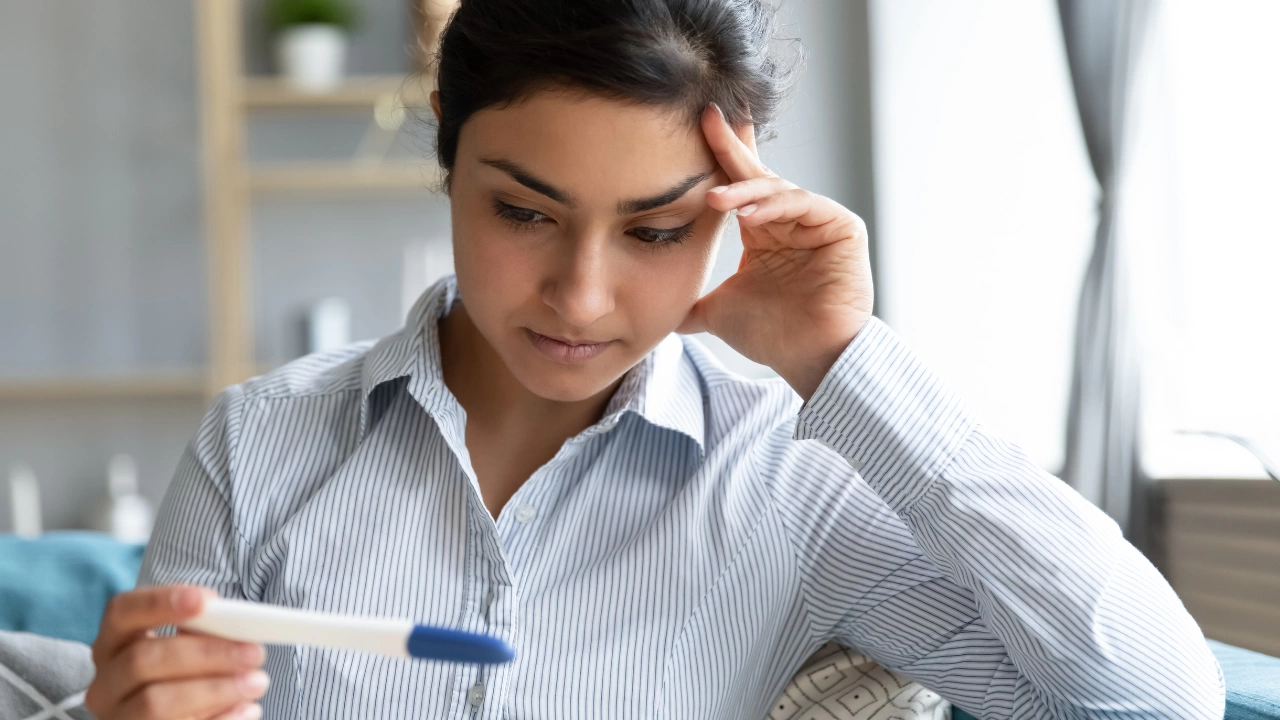Female masturbation is often surrounded by myths and misconceptions that can lead to unnecessary confusion and stigma. Many women are curious about its effects on their bodies, particularly when it comes to reproductive health and ovulation.
Understanding the role of masturbation in a woman’s overall health is crucial for dispelling these myths and promoting a more informed and healthy approach to sexual well-being.
Masturbation is a normal and healthy sexual activity that many women engage in for a variety of reasons, including pleasure, stress relief, and a deeper connection with their own bodies. Despite its prevalence, misinformation abounds, particularly concerning its impact on fertility and the menstrual cycle.
Recommended: Does Ovulation Make You Tired?
This article dives into the physiological responses, health benefits, and specifically addresses the question: does female masturbation affect ovulation?
What is Female Masturbation?
Female masturbation refers to the self-stimulation of the genitals for sexual pleasure. It’s a common practice that many women engage in to explore their bodies and experience sexual satisfaction. Techniques vary widely, and experiences are deeply personal.

Attitudes toward female masturbation have shifted dramatically over time. While some cultures have historically stigmatized it, others have celebrated it as a normal aspect of sexual health. Today, increasing numbers of people recognize it as a healthy, natural practice.
The Physiology of Female Masturbation
When a woman masturbates, her body undergoes a series of responses. Blood flow to the genitals increases, resulting in swelling and lubrication. Orgasm, if achieved, involves rhythmic contractions of the pelvic muscles, followed by a period of relaxation.
Recommended: Do Ovulation Tests Get Darker After 5 Minutes?
Masturbation triggers the release of several hormones, including endorphins, oxytocin, and dopamine. These chemicals contribute to feelings of pleasure and relaxation, enhancing overall well-being.
Health Benefits of Female Masturbation
Masturbation offers several mental health benefits. It helps reduce stress, improves mood, and can promote better sleep. These benefits arise from the release of endorphins and other feel-good hormones.
Physically, masturbation can strengthen pelvic floor muscles, enhance sexual health, and alleviate menstrual pain. Regular pelvic muscle contractions during orgasm help maintain muscle tone and urinary control.
Does Female Masturbation Affect Ovulation?
Current scientific evidence suggests that female masturbation does not negatively impact ovulation. Studies indicate that while masturbation influences hormonal levels, it doesn’t disrupt the regularity or timing of ovulation. The hormonal changes, primarily involving endorphins and oxytocin, have a short-term effect that does not interfere with the ovulatory cycle.
Gynecologists and endocrinologists support the view that masturbation is a safe practice that does not harm fertility. They emphasize that any variations in the menstrual cycle are more likely due to factors such as stress, diet, and overall health rather than masturbation.
Recommended: Does Ovulation Make You Emotional?
Common myths claim that masturbation can harm fertility or disrupt hormonal balance. However, these beliefs lack scientific backing. Masturbation is a normal, healthy part of sexual activity that does not negatively affect reproductive health.

Psychological Aspects of Female Masturbation
Masturbation can positively impact self-esteem and body image by fostering a sense of self-awareness and acceptance. Women who masturbate often report a better understanding of their bodies and sexual preferences.
Regular masturbation can boost sexual confidence and satisfaction. It helps women learn what feels good, which can enhance their sexual experiences with partners.
Recommended: 3 Human Hormones Most Directly Involved in Sexual Reproduction
Despite its benefits, many women experience guilt or shame about masturbation. Addressing these feelings involves educating oneself about the normalcy and health benefits of masturbation.
Practical Tips and Considerations
Maintaining reproductive health involves more than just understanding masturbation. Regular check-ups, a balanced diet, and managing stress are essential for a healthy menstrual cycle.
Women should seek medical advice if they notice significant changes in their menstrual cycle or experience pain during masturbation. These could indicate underlying health issues that need professional attention.
Recommended: Top 10 Myths and Misconceptions of Family Planning
Practicing safe masturbation involves using clean hands and sex toys to prevent infections. Understanding one’s body and respecting its signals is key to a healthy sexual practice.
Conclusion
Female masturbation is a natural and healthy activity that offers numerous benefits without affecting ovulation. By debunking myths and understanding the true impacts, women can embrace their sexual health with confidence.
Don’t forget to share your thoughts or experiences and to subscribe for more insightful content on women’s health and wellness. Prioritize your sexual and reproductive health—it’s an integral part of your overall well-being.
